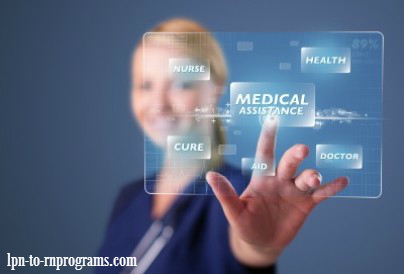Nursing Profession in the Modern Age
In the early years, nursing has been considered as an occupation rather than a profession. Many people refer to nurses as mere assistants of physicians who only follow what is ordered to them. They even think that nurses only administer medications as per doctor’s order. However, at the present time, nurses have been recognized as professionals who have acquired adequate knowledge through education and rigorous training.
In modern nursing, we nurses are considered as vital members of the health team wherein physicians act as the captain. We cannot deny the fact that the primary decision still comes from the physicians and nurses are delegated to carry out their orders. Hence, this is considered as one of our dependent nursing functions. However, our role does not end here. With our experience in the healthcare setting, we are expected to apply our knowledge to act as a patient advocate.
Being a patient advocate means providing care to our patients for their welfare and best interest. An epitome of this is best represented when we administer drugs. Doctors may order medications to address our patient’s chief complaint. However, there are times that these medications may not be appropriate for the patient’s medical condition. For example, morphine may be ordered for patients who suffer severe pain but you may clarify it to the doctor once he ordered it for pain related to cholelithiasis. With background in pharmacology, we should be aware that morphine may cause spasms in the sphincter of Oddi which may aggravate the patient’s condition.

The scenario mentioned above deciphers that we play an active role in patient care. Hence, we do not merely follow the physician’s order and we are not mere assistants. Instead, we ‘collaborate’ with other members of the health team to promote optimum health among our clients. Furthermore, since we also spend more time with our patients, our keen observation would help in assessing the client’s health status. Through this, a more accurate diagnosis and a more precise treatment will be ensured.
Aside from this, we also perform independent functions. These include assessment and some nursing interventions such as ambulation and patient education. Patient education is sometimes given the least priority as we focus on rendering interventions which address physiological concerns. Moreover, we often limit health education to our patients. In reality, we should also include patient’s significant others in health education because they are primarily responsible in patient care. It is also essential to include them in the plan of care.
In connection to this, during health education, we should never assume a directive role or as if we are dictating what to do. Open communication and autonomy should be encouraged. Through this, we will also have the chance to assess not only the patient but also the environmental factors which may affect the patient’s health. In addition, we will also be able to assess the client’s support system. This method of nursing intervention allows the patient’s family to participate in the plan of care. Most importantly, it also enables us to treat the patient holistically to promote physical, psychological and spiritual well-being.
Another point is that it is important for us to collaborate because we do not work alone. Instead, we work hand in hand with other members of the health team. Aside from the physician, we should also communicate with other departments such as the pharmacy, dietary and rehabilitation departments. We are also expected to collaborate with our co-staff nurses to ensure continuity of care.
With my experience in the hospital, I can personally say that collaboration really plays an important role in patient care. We do not know everything to address all the concerns of our clients. There are other professionals who are knowledgeable in specific areas of patient care including nutrition and rehabilitation. Other members of the health team also underwent rigorous training in various fields. Hence, like us, they are equipped with adequate knowledge and they have been prepared to deal with complex situations. However, nursing still has a distinct characteristic compared to other healthcare professions in such a way that we do not only relieve physical sufferings. With our compassion and selfless service, we may be able to relieve the inner pain and even touch the hearts of our patients.
Most importantly, every member of the health team should keep in his mind that patient care is not about who is superior or who had the longest experience. Each member should be recognized because he has his own expertise which he can utilize in curing the patient’s illness. Respect and unity is the key to establish rapport and harmonious relationship within the team. Through this, each member will be given the chance to maximize his potential and to use his abilities for the welfare of our patients.


Comments
Nursing Profession in the Modern Age — No Comments
HTML tags allowed in your comment: <a href="" title=""> <abbr title=""> <acronym title=""> <b> <blockquote cite=""> <cite> <code> <del datetime=""> <em> <i> <q cite=""> <s> <strike> <strong>